 The HPS Podcast - Conversations from History, Philosophy and Social Studies of Science
The HPS Podcast - Conversations from History, Philosophy and Social Studies of ScienceTwitter: @TheHPSPodcast
Site: www.hpsunimelb.org/the-hps-podcast
39 episodes • 2023 to present
Average episode: 24 minutes
Open in Apple Podcasts • RSS
Categories: Interview-Style
Podcaster's summary: Next Episode Coming Thursday 9th May!Leading scholars in History, Philosophy and Social Studies of Science (HPS) introduce contemporary topics for a general audience. Developed by scholars and students in the HPS program at the University of Melbourne. Episodes released weekly. Current Hosts: Samara Greenwood and Carmelina Contarino.
 Science Weekly
Science WeeklyTwitter: @guardianscience
Site: www.theguardian.com/science/series/science
300 episodes • 2021 to present
Average episode: 16 minutes
Open in Apple Podcasts • RSS
Categories: News-Style
Podcaster's summary: Twice a week, the Guardian brings you the latest science and environment news
 Ologies with Alie Ward
Ologies with Alie WardTwitter: @Ologies • @alieward
Site: www.alieward.com/ologies
395 episodes • 2017 to present
Average episode: 65 minutes
Open in Apple Podcasts • RSS
Categories: Interview-Style
Podcaster's summary: Volcanoes. Trees. Drunk butterflies. Mars missions. Slug sex. Death. Beauty standards. Anxiety busters. Beer science. Bee drama. Take away a pocket full of science knowledge and charming, bizarre stories about what fuels these professional -ologists' obsessions. Humorist and science correspondent Alie Ward asks smart people stupid questions and the answers might change your life.
 Science Friday
Science FridayTwitter: @scifri
Site: www.sciencefriday.com/radio
150 episodes • 2023 to present
Average episode: 21 minutes
Open in Apple Podcasts • RSS
Categories: Broadcast Radio Programs • News-Style
Podcaster's summary: Brain fun for curious people.
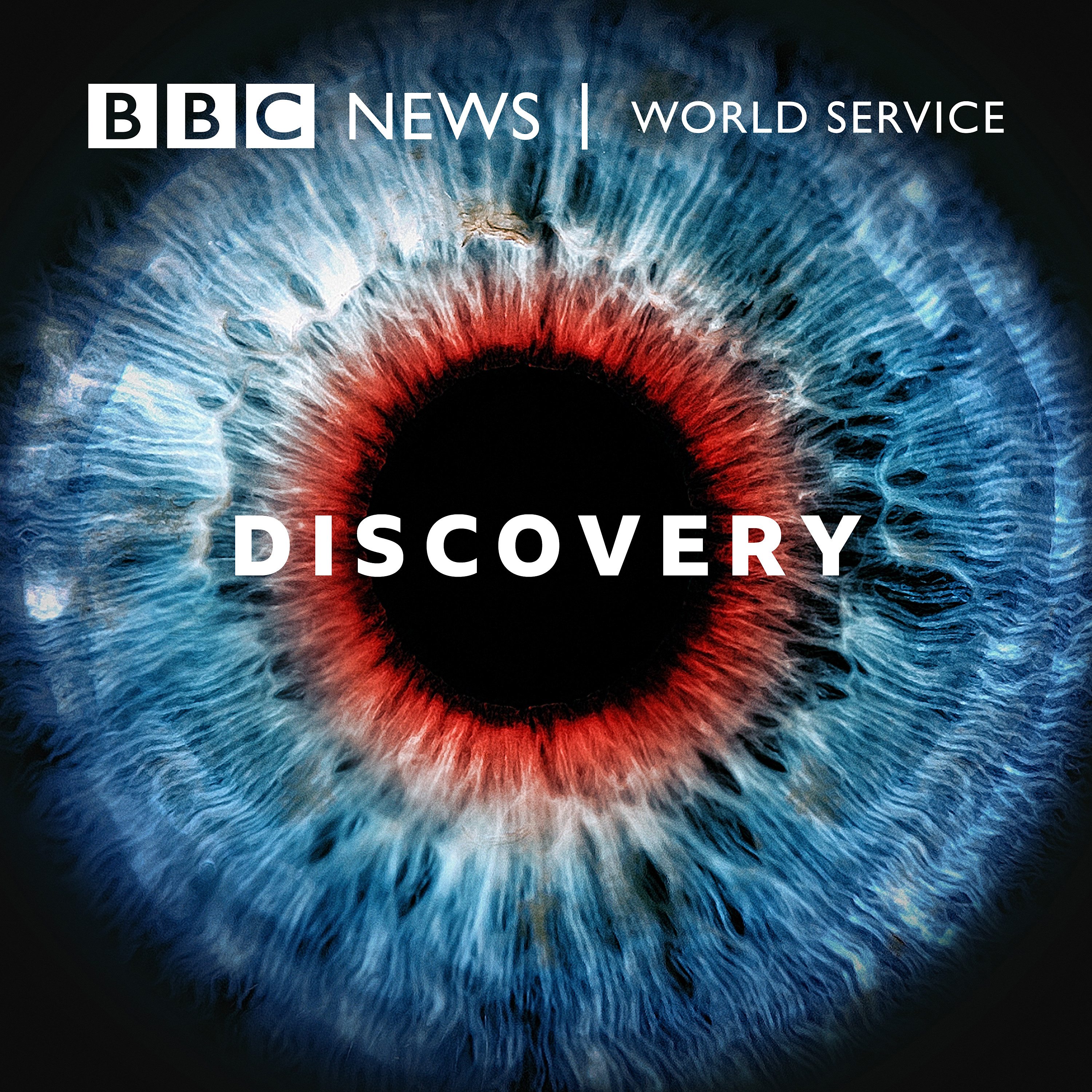 Discovery
DiscoveryTwitter: @bbcworldservice
Site: www.bbc.co.uk/programmes/p002w557
741 episodes • 2010 to present
Average episode: 27 minutes
Open in Apple Podcasts • RSS
Categories: Broadcast Radio Programs • Story-Style
Podcaster's summary: Explorations in the world of science.
 Nature Podcast
Nature PodcastTwitter: @NaturePodcast
Site: www.nature.com/nature/podcast
721 episodes • 2014 to present
Average episode: 24 minutes
Open in Apple Podcasts • RSS
Categories: News-Style
Podcaster's summary: The Nature Podcast brings you the best stories from the world of science each week. We cover everything from astronomy to zoology, highlighting the most exciting research from each issue of the Nature journal. We meet the scientists behind the results and provide in-depth analysis from Nature's journalists and editors. Hosted on Acast. See acast.com/privacy for more information.
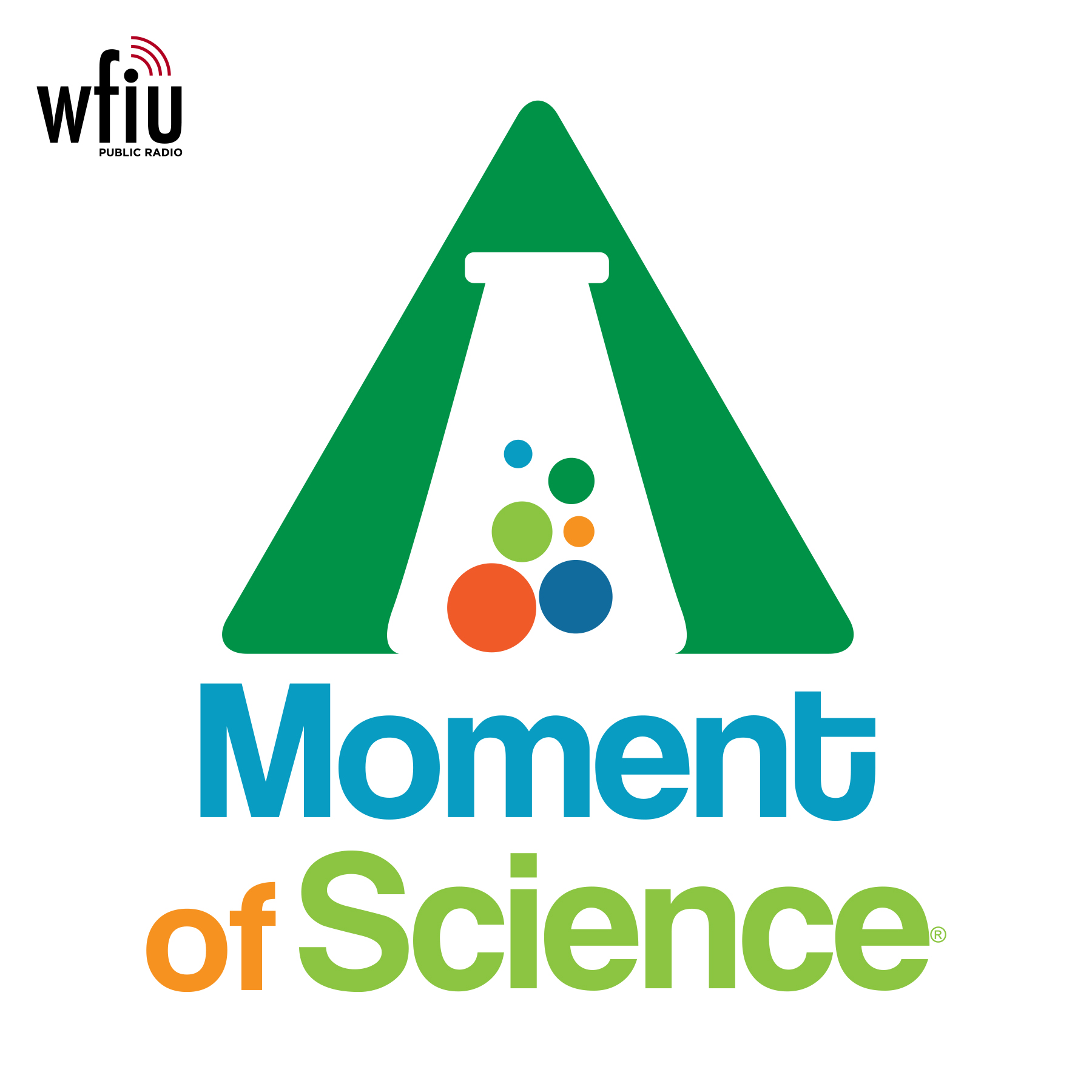 A Moment of Science
A Moment of ScienceTwitter: @momentofscience
Site: indianapublicmedia.org/amomentofscience
1091 episodes • 2013 to present
Average episode: 2 minutes
Open in Apple Podcasts • RSS
Categories: Broadcast Radio Programs • Story-Style
Podcaster's summary: A Moment of Science is a daily audio podcast, public radio program and video series providing the scientific story behind some of life's most perplexing mysteries.
 Science, Spoken
Science, SpokenTwitter: @WIREDScience
Site: www.wired.com/category/science
2290 episodes • 2016 to present
Average episode: 9 minutes
Open in Apple Podcasts • RSS
Categories: Story-Style
Podcaster's summary: Get in-depth coverage of current and future trends in technology, and how they are shaping business, entertainment, communications, science, politics, and society.
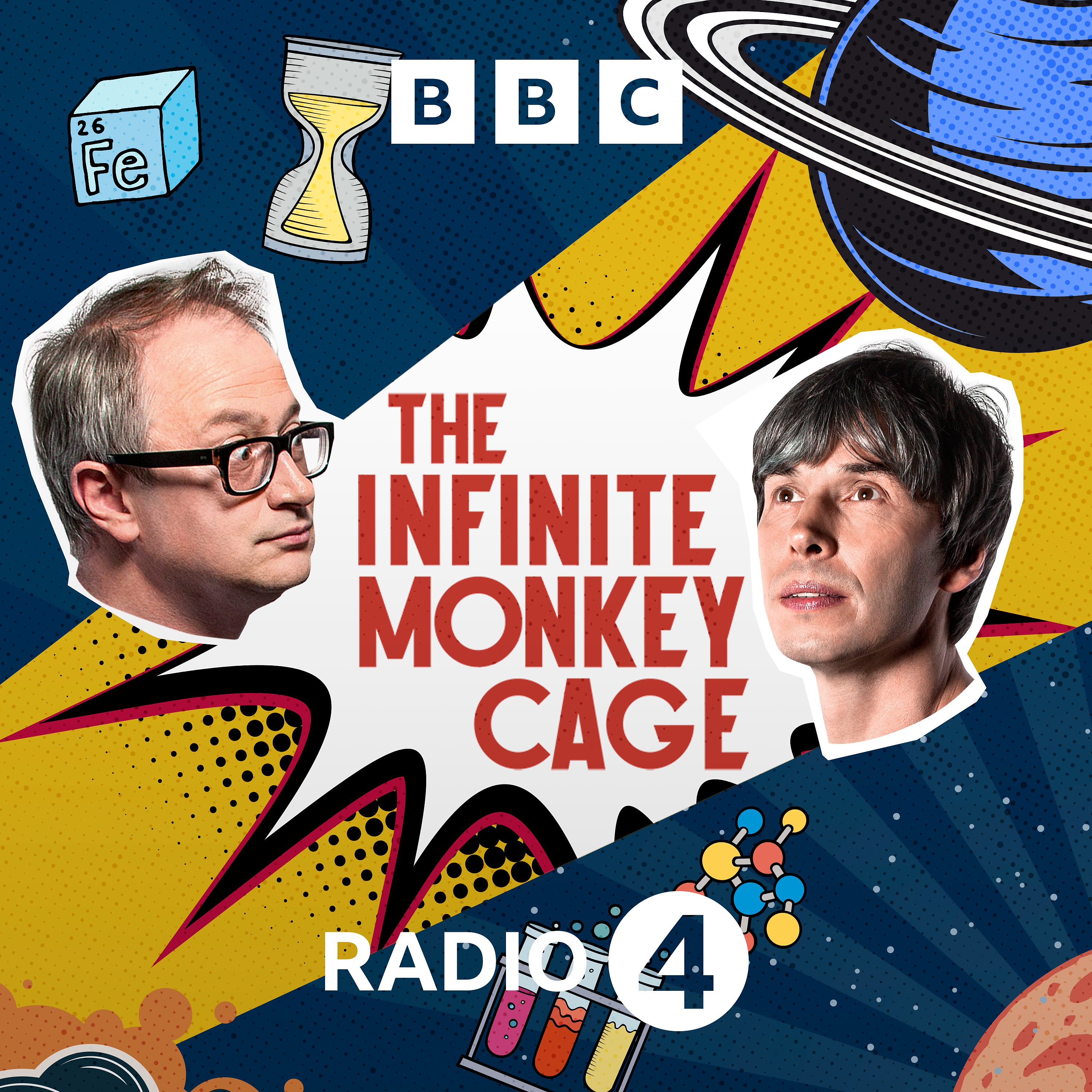 The Infinite Monkey Cage
The Infinite Monkey CageTwitter: @themonkeycage • @ProfBrianCox • @robinince
Site: www.bbc.co.uk/programmes/b00snr0w
202 episodes • 2009 to present
Average episode: 38 minutes
Open in Apple Podcasts • RSS
Categories: Broadcast Radio Programs • Panel-Style • Two Hosts
Podcaster's summary: Brian Cox and Robin Ince host a witty, irreverent look at the world through scientists' eyes.
 Unexplainable
UnexplainableTwitter: @voxdotcom • @nhassenfeld
Site: www.vox.com/unexplainable
149 episodes • 2021 to present
Average episode: 29 minutes
Open in Apple Podcasts • RSS
Categories: Story-Style
Podcaster's summary: Unexplainable takes listeners right up to the edge of what we know ... and then keeps right on going. This Vox podcast explores scientific mysteries, unanswered questions, and all the things we learn by diving into the unknown. New episodes every Wednesday.
 Short Wave
Short WaveTwitter: @NPR
Site: www.npr.org/podcasts/510351/short-wave
1060 episodes • 2019 to present
Average episode: 13 minutes
Open in Apple Podcasts • RSS
Categories: Broadcast Radio Programs • Story-Style
Podcaster's summary: New discoveries, everyday mysteries, and the science behind the headlines — in just under 15 minutes. It's science for everyone, using a lot of creativity and a little humor. Join hosts Emily Kwong and Regina Barber for science on a different wavelength.If you're hooked, try Short Wave Plus. Your subscription supports the show and unlocks a sponsor-free feed. Learn more at plus.npr.org/shortwave
 New Scientist Podcasts
New Scientist PodcastsTwitter: @newscientist
Site: www.newscientist.com
293 episodes • 2020 to present
Average episode: 27 minutes
Open in Apple Podcasts • RSS
Categories: News-Style
Podcaster's summary: Podcasts for the insatiably curious by the world’s most popular weekly science magazine. Everything from the latest science and technology news to the big-picture questions about life, the universe and what it means to be human.For more visit newscientist.com/podcasts Hosted on Acast. See acast.com/privacy for more information.
 Brains On! Science podcast for kids
Brains On! Science podcast for kidsTwitter: @Brains_On
Site: www.brainson.org
329 episodes • 2013 to present
Average episode: 28 minutes
Open in Apple Podcasts • RSS
Categories: Broadcast Radio Programs • Kids • Story-Style
Podcaster's summary: Brains On!® is a science podcast for curious kids and adults from American Public Media. Each week, a different kid co-host joins Molly Bloom to find answers to fascinating questions about the world sent in by listeners. Like, do dogs know they’re dogs? Or, why do feet stink? Plus, we have mystery sounds for you to guess, songs for you to dance to, and lots of facts -- all checked by experts.
 New Books in Science
New Books in ScienceTwitter: @NewBooksSci
Site: newbooksnetwork.com/category/science-technology/science
751 episodes • 2008 to present
Average episode: 60 minutes
Open in Apple Podcasts • RSS
Categories: Interview-Style
Podcaster's summary: Interviews with Scientists about their New Books | Support our show by becoming a premium member! https://newbooksnetwork.supportingcast.fm/science
 SciShow Tangents
SciShow TangentsTwitter: @SciShowTangents • @hankgreen • @ceriley • @itsmestefanchin • @im_sam_schultz
Site: complexly.com/shows/scishow-tangents
263 episodes • 2018 to present
Average episode: 35 minutes
Open in Apple Podcasts • RSS
Categories: Three+ Hosts
Podcaster's summary: SciShow Tangents is the lightly competitive knowledge showcase from the geniuses behind the YouTube series SciShow. Every other Tuesday, join Hank Green, Ceri Riley, and Sam Schultz as they try to one-up and amaze each other with weird and funny scientific research... while not getting distracted. There will be tangents about video games, music, weird smells, surprisingly deep insights about life, and of course, poop, but it always comes back to the science.
 The Naked Scientists Podcast
The Naked Scientists PodcastTwitter: @NakedScientists
Site: www.thenakedscientists.com/podcasts/naked-scientists-podcast
1046 episodes • 2005 to present
Average episode: 53 minutes
Open in Apple Podcasts • RSS
Categories: Story-Style
Podcaster's summary: The Naked Scientists flagship science show, includes the latest science news, interviews with top scientists, hands-on science experiments and answers to your science questions.
 New Scientist CultureLab
New Scientist CultureLabTwitter: @newscientist
Site: www.newscientist.com
5 episodes • 2024
Average episode: 34 minutes
Open in Apple Podcasts • RSS
Categories: Interview-Style • Science-Adjacent
Podcaster's summary: CultureLab is an array of delights from the world of culture and the arts. Sometimes we interview the world’s most exciting authors about their fascinating books, other times we delve into the science behind a movie or TV show. New episodes every other Tuesday. Hosted on Acast. See acast.com/privacy for more information.
 PNAS Science Sessions
PNAS Science SessionsTwitter: @PNASNews
Site: www.pnas.org/about/science-sessions-podcast
371 episodes • 2019 to present
Average episode: 7 minutes
Open in Apple Podcasts • RSS
Categories: Story-Style
Podcaster's summary: Welcome to Science Sessions, the PNAS podcast program. Listen to brief conversations with cutting-edge researchers, Academy members, and policymakers as they discuss topics relevant to today's scientific community. Learn the behind-the-scenes story of work published in PNAS, plus a broad range of scientific news about discoveries that affect the world around us.
 Sean Carroll's Mindscape: Science, Society, Philosophy, Culture, Arts, and Ideas
Sean Carroll's Mindscape: Science, Society, Philosophy, Culture, Arts, and IdeasTwitter: @seanmcarroll
Site: www.preposterousuniverse.com/podcast
322 episodes • 2018 to present
Average episode: 97 minutes
Open in Apple Podcasts • RSS
Categories: Interview-Style • Multidisciplinary • Physics
Podcaster's summary: Ever wanted to know how music affects your brain, what quantum mechanics really is, or how black holes work? Do you wonder why you get emotional each time you see a certain movie, or how on earth video games are designed? Then you’ve come to the right place. Each week, Sean Carroll will host conversations with some of the most interesting thinkers in the world. From neuroscientists and engineers to authors and television producers, Sean and his guests talk about the biggest ideas in science, philosophy, culture and much more.
 People Behind the Science Podcast Stories from Scientists about Science, Life, Research, and Science Careers
People Behind the Science Podcast Stories from Scientists about Science, Life, Research, and Science CareersTwitter: @PBtScience • @PhDMarie
Site: peoplebehindthescience.com
759 episodes • 2014 to present
Average episode: 42 minutes
Open in Apple Podcasts • RSS
Categories: Interview-Style • Science-Adjacent
Podcaster's summary: Are you searching for great stories to ignite your curiosity, teach you to perform better in life and career, inspire your mind, and make you laugh along the way? In this science podcast, Dr. Marie McNeely introduces you to the brilliant researchers behind the latest scientific discoveries. Join us as they share their greatest failures, most staggering successes, candid career advice, and what drives them forward in life and science. | | <![CDATA[Our website with show notes]] | | Greetings science fans! | | We’re elated to welcome you to People Behind the Science where we explore the lives and experiences of the people behind the research and scientific discoveries of today. | | People Behind the Science’s mission is to inspire current and future scientists, share the different paths to a successful career in science, educate the general population on what scientists do, and show the human side of science. | | In each episode, a different scientist will guide us through their journey by sharing their successes, failures, and passions. We are excited to introduce you to these inspiring academic and industry experts from all fields of science to give you a variety of perspectives on the life and path of a scientist. | | Our esteemed guests will tell you: | | what motivates them and how they balance their competing responsibilities | how they worked through some of the most challenging times in their careers | advice to help you through your own journey through life and science | | | Our Podcast | | People Behind the Science is a podcast focused on the people doing fascinating research through interviews with top scientists. We are proud to have interviewed so many inspiring scientists, including U.S. National Academy scientists like Josh Sanes, Nick Spitzer, Lou Muglia, Jacob Israelachvili, Gene Robinson, Larry Squire, John Dowling, James Berger, and David Spergel, as well as popular scientists in the media like Donna Nelson (science advisor for the TV show Breaking Bad) and Jack Horner (...
 Big Picture Science
Big Picture ScienceTwitter: @BiPiSci • @SethShostak • @mollycbentley
Site: bigpicturescience.org
566 episodes • 2006 to present
Average episode: 54 minutes
Open in Apple Podcasts • RSS
Categories: Interview-Style • Two Hosts
Podcaster's summary: The surprising connections in science and technology that give you the Big Picture. Astronomer Seth Shostak and science journalist Molly Bentley are joined each week by leading researchers, techies, and journalists to provide a smart and humorous take on science. Our regular "Skeptic Check" episodes cast a critical eye on pseudoscience.
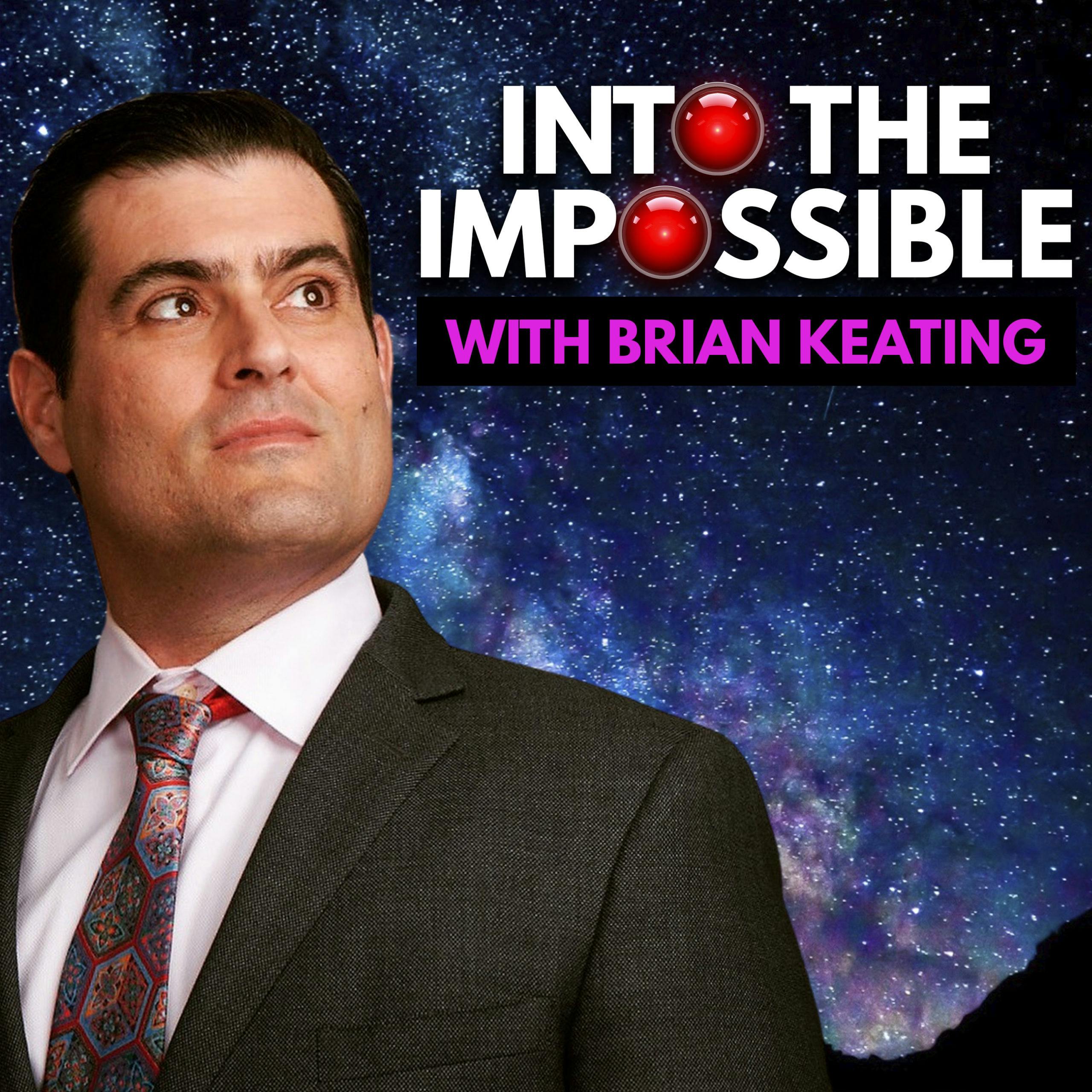 Into the Impossible With Brian Keating
Into the Impossible With Brian KeatingTwitter: @Into_Impossible • @DrBrianKeating
Site: briankeating.com/podcast.php
398 episodes • 2018 to present
Average episode: 68 minutes
Open in Apple Podcasts • RSS
Categories: Interview-Style • Multidisciplinary • Physics
Podcaster's summary: A podcast about how we understand the world, scientifically and as humans. Each conversation brings together visionaries from the worlds of arts, sciences, humanities, and technology discussing the nature of reality and how we collaborate to create the future. Hosted by Dr Brian Keating, Chancellor’s Distinguished Professor of Physics at UC San Diego. For show notes go to: https://briankeating.com/podcast
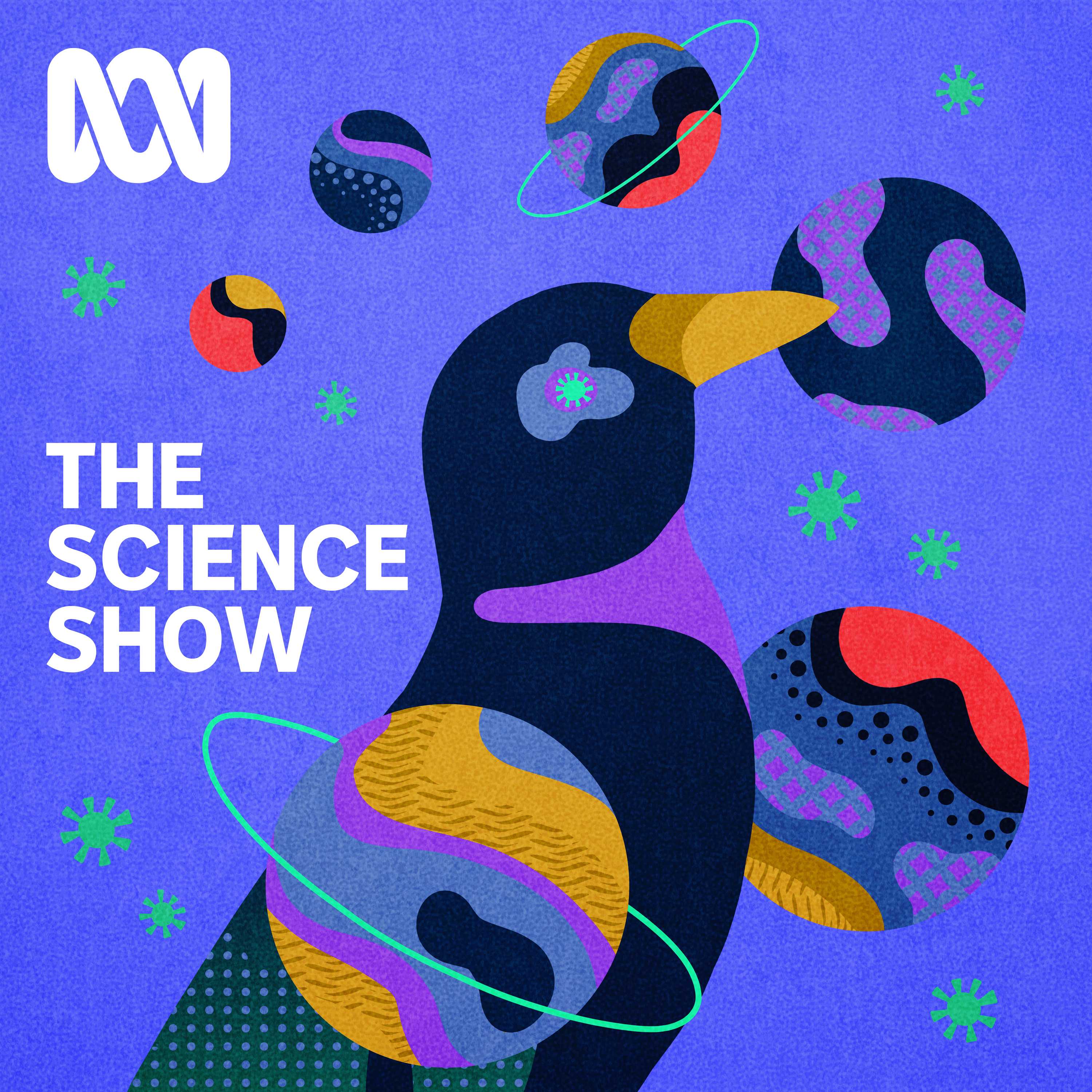 The Science Show
The Science ShowTwitter: @ABCscience
Site: www.abc.net.au/radionational/programs/scienceshow
246 episodes • 2020 to present
Average episode: 52 minutes
Open in Apple Podcasts • RSS
Categories: Broadcast Radio Programs • Story-Style
Podcaster's summary: The Science Show gives Australians unique insights into the latest scientific research and debate, from the physics of cricket to prime ministerial biorhythms.
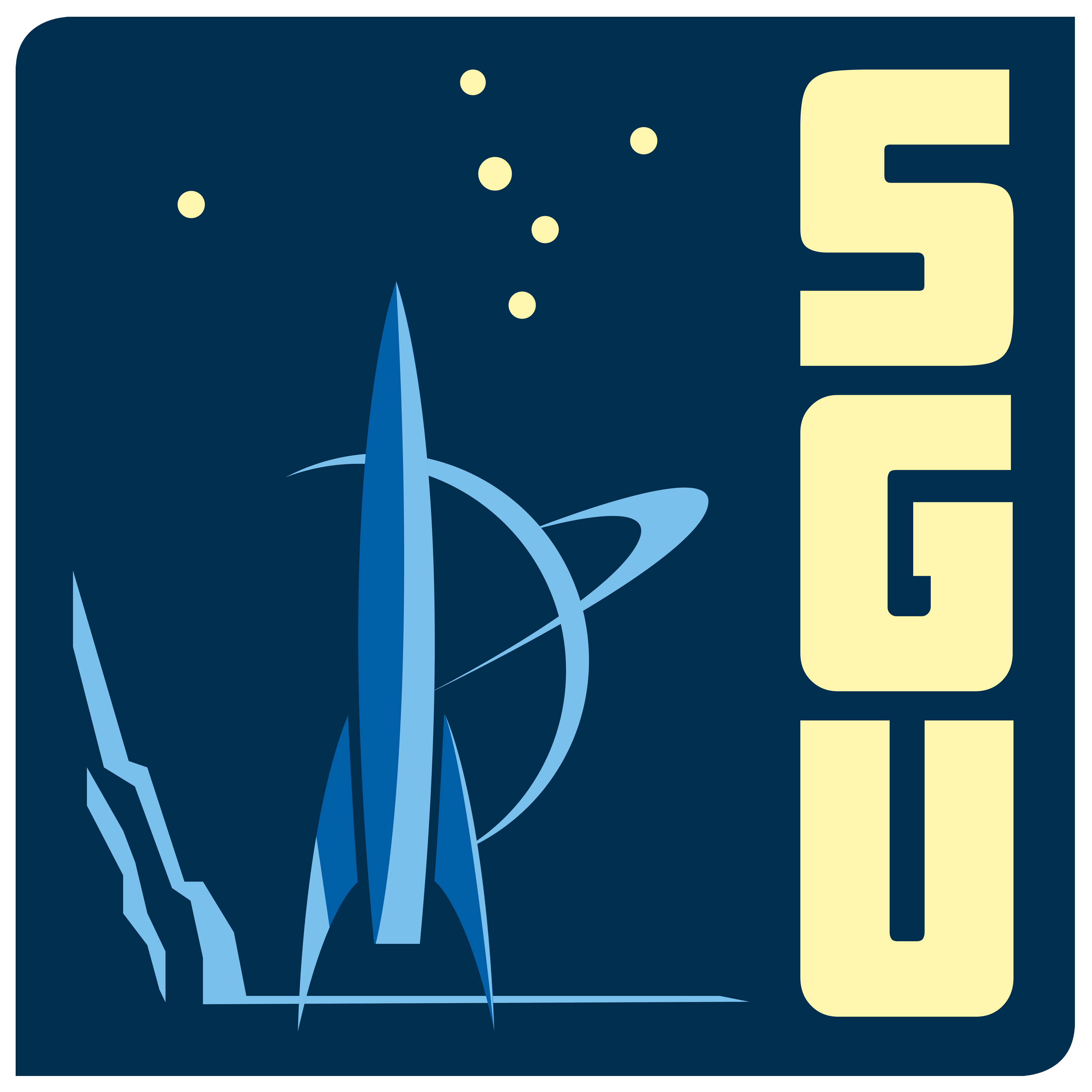 The Skeptics' Guide to the Universe
The Skeptics' Guide to the UniverseTwitter: @SkepticsGuide • @stevennovella
Site: www.theskepticsguide.org
983 episodes • 2005 to present
Open in Apple Podcasts • RSS
Categories: News-Style
Podcaster's summary: The Skeptics' Guide to the Universe is a weekly science podcast discussing the latest science news, critical thinking, bad science, conspiracies and controversies. -The Skeptics' Guide to the Universe: Your escape to reality - Produced by SGU Productions, LLC: https://www.theskepticsguide.org
 Quirks and Quarks
Quirks and QuarksTwitter: @CBCQuirks
Site: www.cbc.ca/radio/quirks
27 episodes • 2023 to present
Average episode: 53 minutes
Open in Apple Podcasts • RSS
Categories: Broadcast Radio Programs • News-Style
Podcaster's summary: CBC Radio's Quirks and Quarks covers the quirks of the expanding universe to the quarks within a single atom... and everything in between.
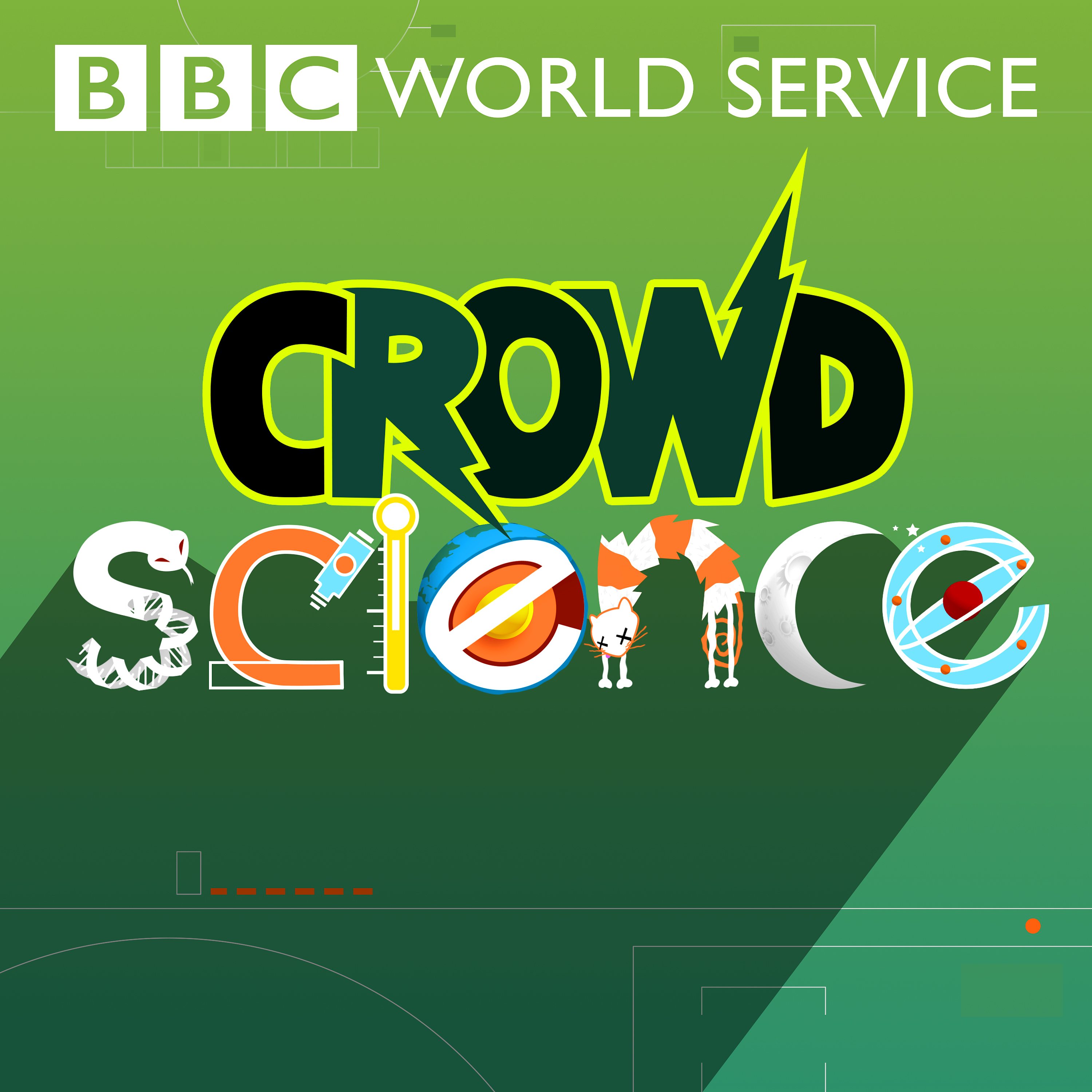 CrowdScience
CrowdScienceTwitter: @BBCScienceNews
Site: www.bbc.co.uk/programmes/p04d42rc
386 episodes • 2016 to present
Average episode: 32 minutes
Open in Apple Podcasts • RSS
Categories: Broadcast Radio Programs • Story-Style
Podcaster's summary: We take your questions about life, Earth and the universe to researchers hunting for answers at the frontiers of knowledge.
 New Scientist Weekly
New Scientist WeeklyTwitter: @newscientist
Site: www.newscientist.com
11 episodes • 2024
Average episode: 29 minutes
Open in Apple Podcasts • RSS
Categories: Interview-Style
Podcaster's summary: A news podcast for the instatiably curious by the world's most popular weekly science magazine. Everything from the latest science and technology news to the big-picture questions about life, the universe and what it means to be human.For more visit newscientist.com/podcasts Hosted on Acast. See acast.com/privacy for more information.
 The Stephen Wolfram Podcast
The Stephen Wolfram PodcastTwitter: @stephen_wolfram • @WolframResearch
Site: www.stephenwolfram.com
358 episodes • 2017 to present
Average episode: 80 minutes
Open in Apple Podcasts • RSS
Categories: Monologue (Non-Course)
Podcaster's summary: Stephen Wolfram is the creator of Mathematica, Wolfram|Alpha and the Wolfram Language; the author of A New Kind of Science; and the founder and CEO of Wolfram Research. Over the course of nearly four decades, he has been a pioneer in the development and application of computational thinking—and has been responsible for many discoveries, inventions and innovations in science, technology and business. | | On his podcast, Stephen discusses topics ranging from the history of science to the future of civilization and ethics of AI.
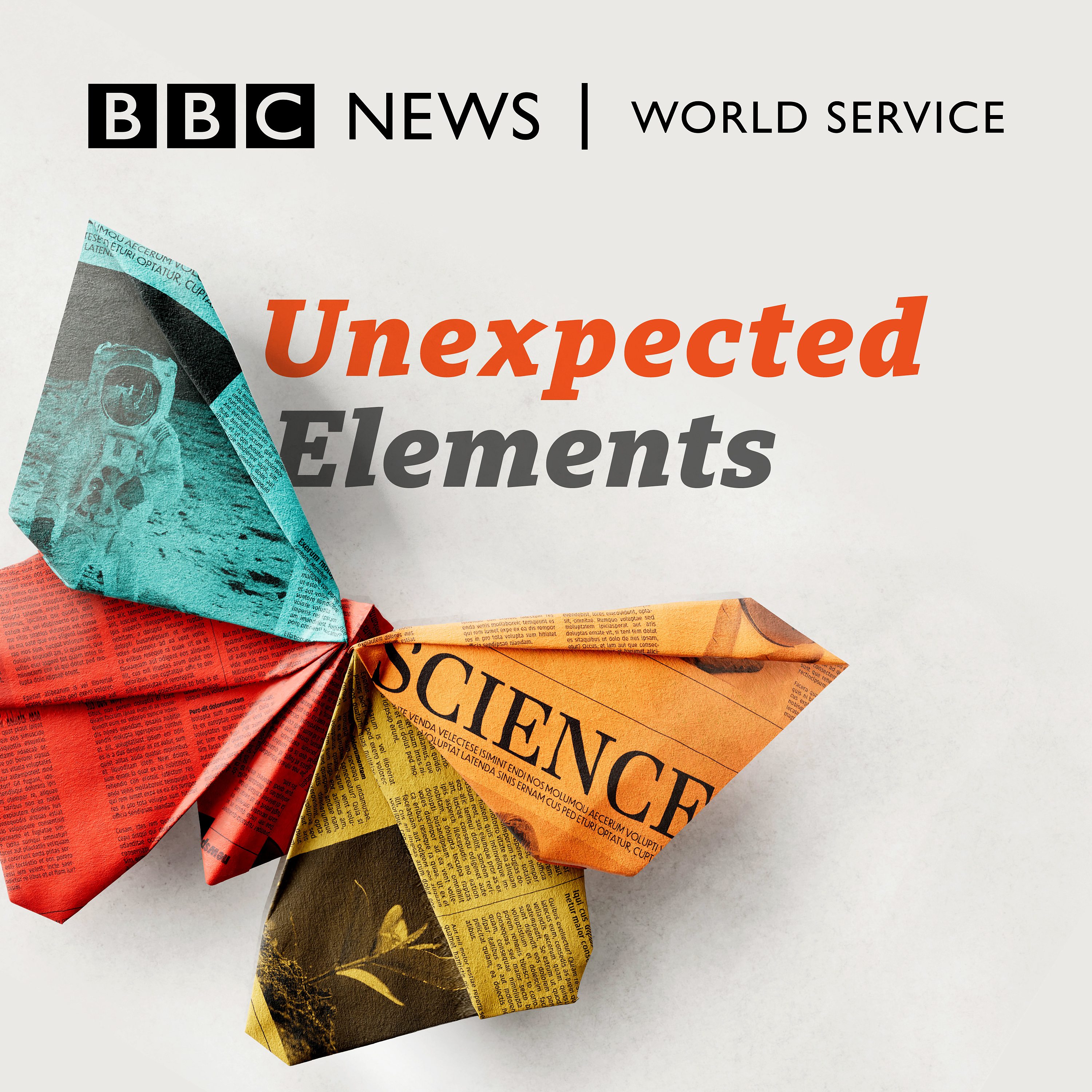 Unexpected Elements
Unexpected ElementsTwitter: @bbcworldservice
Site: www.bbc.co.uk/programmes/p016tmt2
219 episodes • 2019 to present
Average episode: 60 minutes
Open in Apple Podcasts • RSS
Categories: Broadcast Radio Programs • News-Style
Podcaster's summary: The news you know, the science you don’t. Unexpected Elements looks beyond everyday narratives to discover a goldmine of scientific stories and connections from around the globe. From Afronauts, to why we argue, to a deep dive on animal lifespans: see the world in a new way.
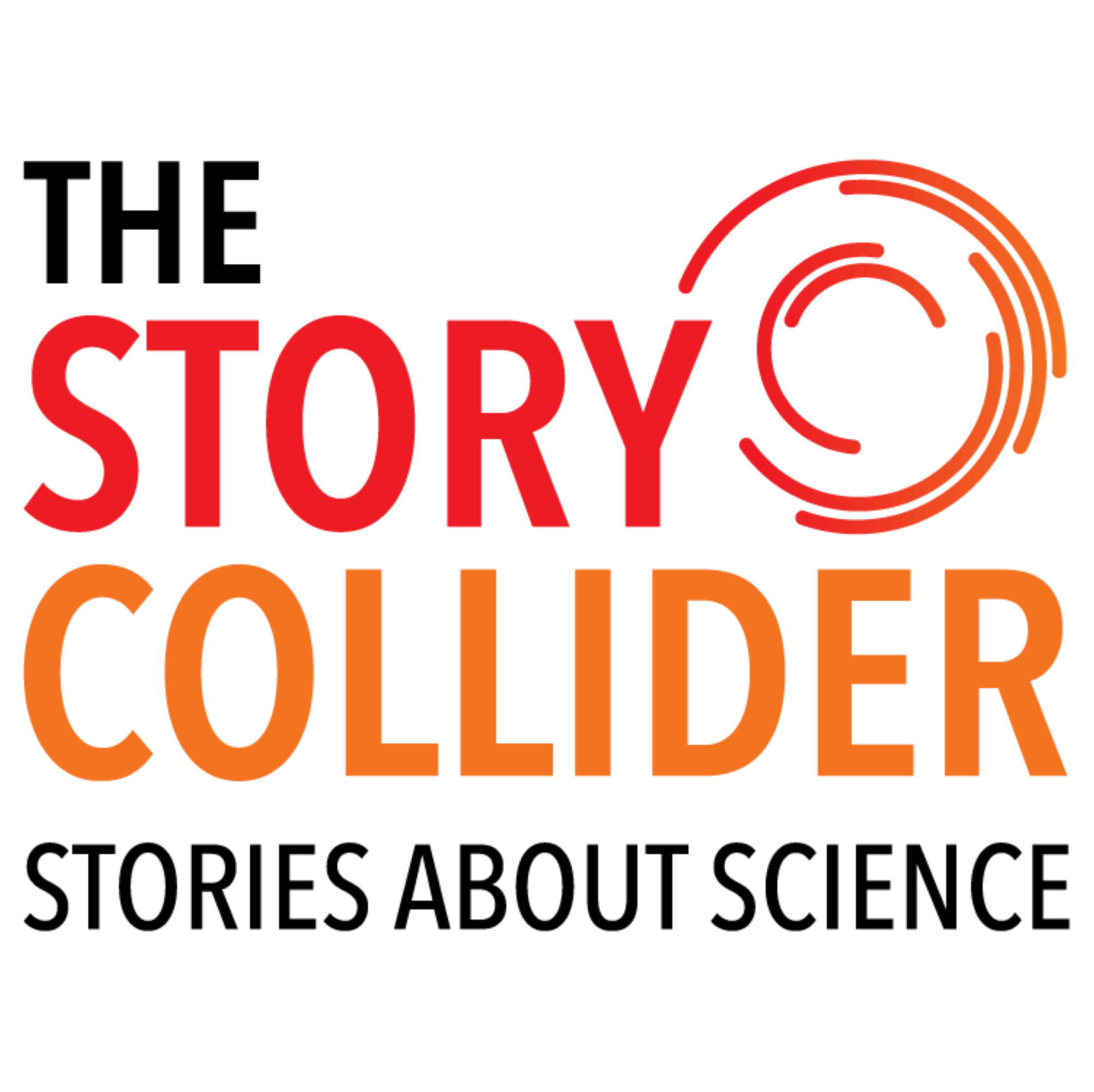 The Story Collider
The Story ColliderTwitter: @storycollider
Site: storycollider.org
613 episodes • 2012 to present
Average episode: 26 minutes
Open in Apple Podcasts • RSS
Categories: Science-Adjacent • Story-Style
Podcaster's summary: Whether we wear a lab coat or haven't seen a test tube since grade school, science is shaping all of our lives. And that means we all have science stories to tell. Every year, we host dozens of live shows all over the country, featuring all kinds of storytellers - researchers, doctors, and engineers of course, but also patients, poets, comedians, cops, and more. Some of our stories are heartbreaking, others are hilarious, but they're all true and all very personal. Welcome to The Story Collider!
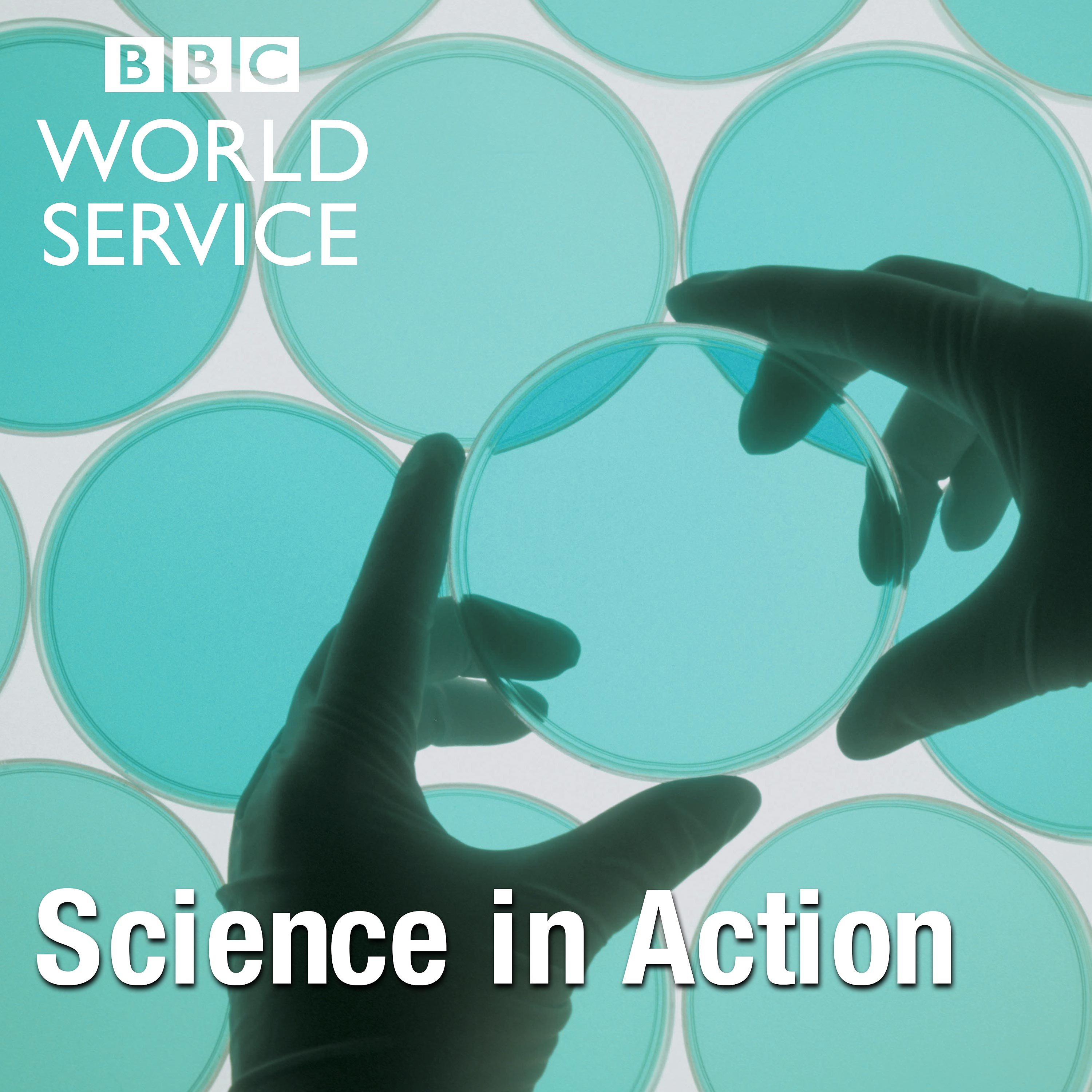 Science In Action
Science In ActionTwitter: @bbcworldservice • @thescienceear
Site: www.bbc.co.uk/programmes/p002vsnb
257 episodes • 2019 to present
Average episode: 31 minutes
Open in Apple Podcasts • RSS
Categories: Broadcast Radio Programs • News-Style
Podcaster's summary: The BBC brings you all the week's science news.
 Science Magazine Podcast
Science Magazine PodcastTwitter: @ScienceMagazine
Site: www.sciencemag.org
535 episodes • 2013 to present
Average episode: 28 minutes
Open in Apple Podcasts • RSS
Categories: News-Style
Podcaster's summary: Weekly podcasts from Science Magazine, the world's leading journal of original scientific research, global news, and commentary.
 BBC Inside Science
BBC Inside ScienceTwitter: @BBCRadio4
Site: www.bbc.co.uk/programmes/b036f7w2
544 episodes • 2013 to present
Average episode: 31 minutes
Open in Apple Podcasts • RSS
Categories: Broadcast Radio Programs • Science-Adjacent • Story-Style
Podcaster's summary: A weekly programme that illuminates the mysteries and challenges the controversies behind the science that's changing our world.
 Cool Science Radio
Cool Science RadioTwitter: @KPCWRadio
Site: www.kpcw.org
20 episodes • 2023 to present
Average episode: 52 minutes
Open in Apple Podcasts • RSS
Categories: Broadcast Radio Programs • Story-Style
Podcaster's summary: From the discovery of new dinosaurs to the science of an avalanche. From the secret technology behind Facebook, to nanotechnology. Deciphering science and technology in an entertaining, amusing and accessible way. If we can understand it, so can you. Hosted by Lynn Ware Peek and Katie Mullaly.
 UnDisciplined
UnDisciplinedTwitter: @SoUndisciplined • @mdlaplante • @nalininadkarni
Site: www.upr.org/show/undisciplined
255 episodes • 2018 to present
Average episode: 26 minutes
Open in Apple Podcasts • RSS
Categories: Broadcast Radio Programs • Story-Style
Podcaster's summary: Each week, UnDisciplined takes a fun, fascinating and accessible dive into the lives of researchers and explorers working across a wide variety of scientific fields.
 In Our Time: Science
In Our Time: ScienceTwitter: @BBCInOurTime
Site: www.bbc.co.uk/programmes/p01gyd7j
284 episodes • 1998 to present
Average episode: 41 minutes
Open in Apple Podcasts • RSS
Categories: Broadcast Radio Programs • Panel-Style
Podcaster's summary: Scientific principles, theory, and the role of key figures in the advancement of science.
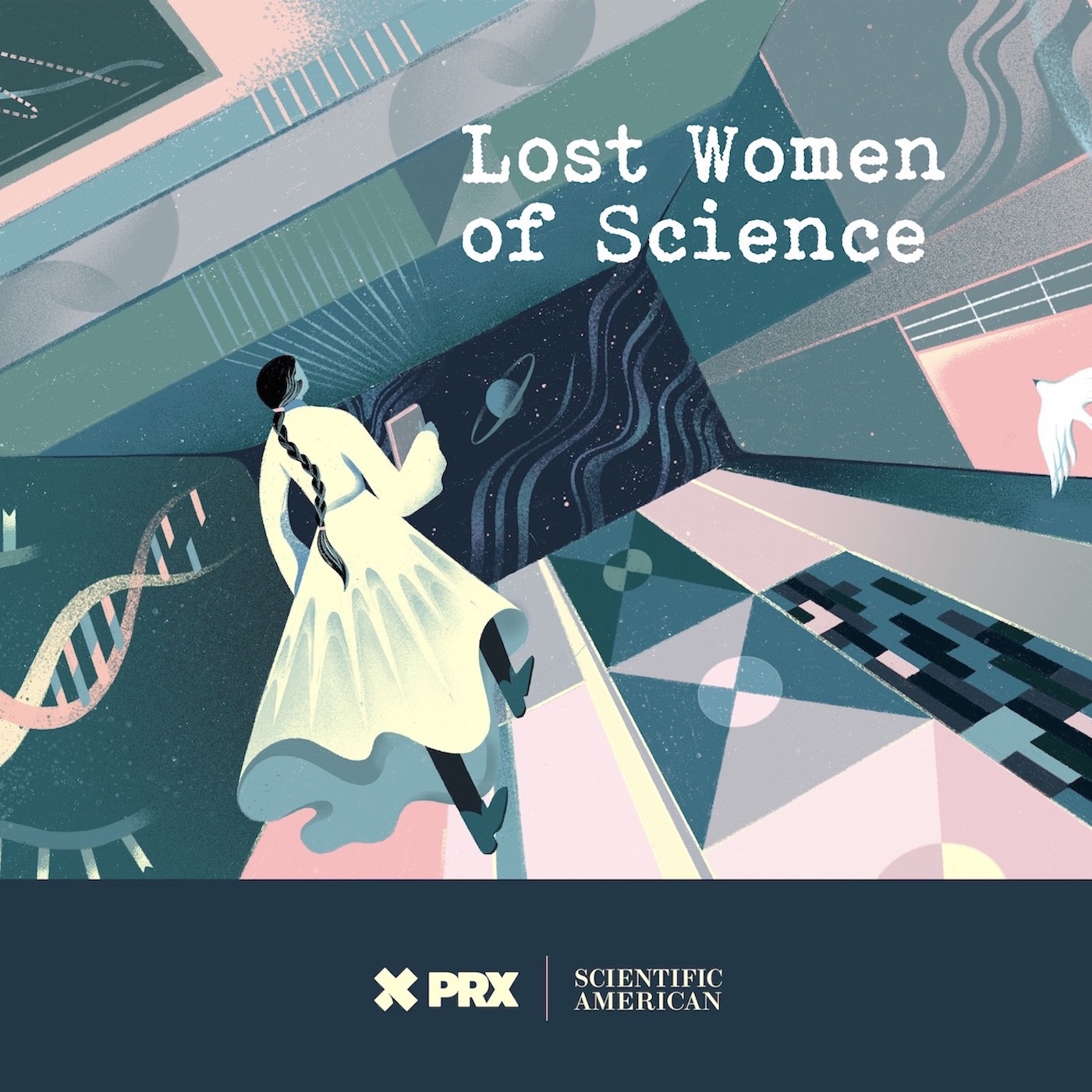 Lost Women of Science
Lost Women of ScienceTwitter: @LostWomenofSci
Site: lostwomenofscience.org
74 episodes • 2021 to present
Average episode: 25 minutes
Open in Apple Podcasts • RSS
Categories: Science-Adjacent
Podcaster's summary: For every Marie Curie or Rosalind Franklin whose story has been told, hundreds of female scientists remain unknown to the public at large. In this series, we illuminate the lives and work of a diverse array of groundbreaking scientists who, because of time, place and gender, have gone largely unrecognized. Each season we focus on a different scientist, putting her narrative into context, explaining not just the science but also the social and historical conditions in which she lived and worked. We also bring these stories to the present, painting a full picture of how her work endures.
 Quanta Science Podcast
Quanta Science PodcastTwitter: @QuantaMagazine
Site: www.quantamagazine.org/tag/podcast
238 episodes • 2015 to present
Average episode: 20 minutes
Open in Apple Podcasts • RSS
Categories: Math • Multidisciplinary • Physics • Story-Style
Podcaster's summary: Listen to Quanta Magazine's in-depth news stories about developments in mathematics, theoretical physics, theoretical computer science and the basic life sciences. Quanta, an editorially independent magazine published by the Simons Foundation, seeks to enhance public understanding of basic research. Read more at QuantaMagazine.org. | | You've learned from Quanta. Now we want to learn from you! Quanta is conducting a series of surveys to better serve our audience. Take our podcast listener survey and you will be entered to win a free Quanta book, t-shirt or tote bag: quantamag.typeform.com/podcast
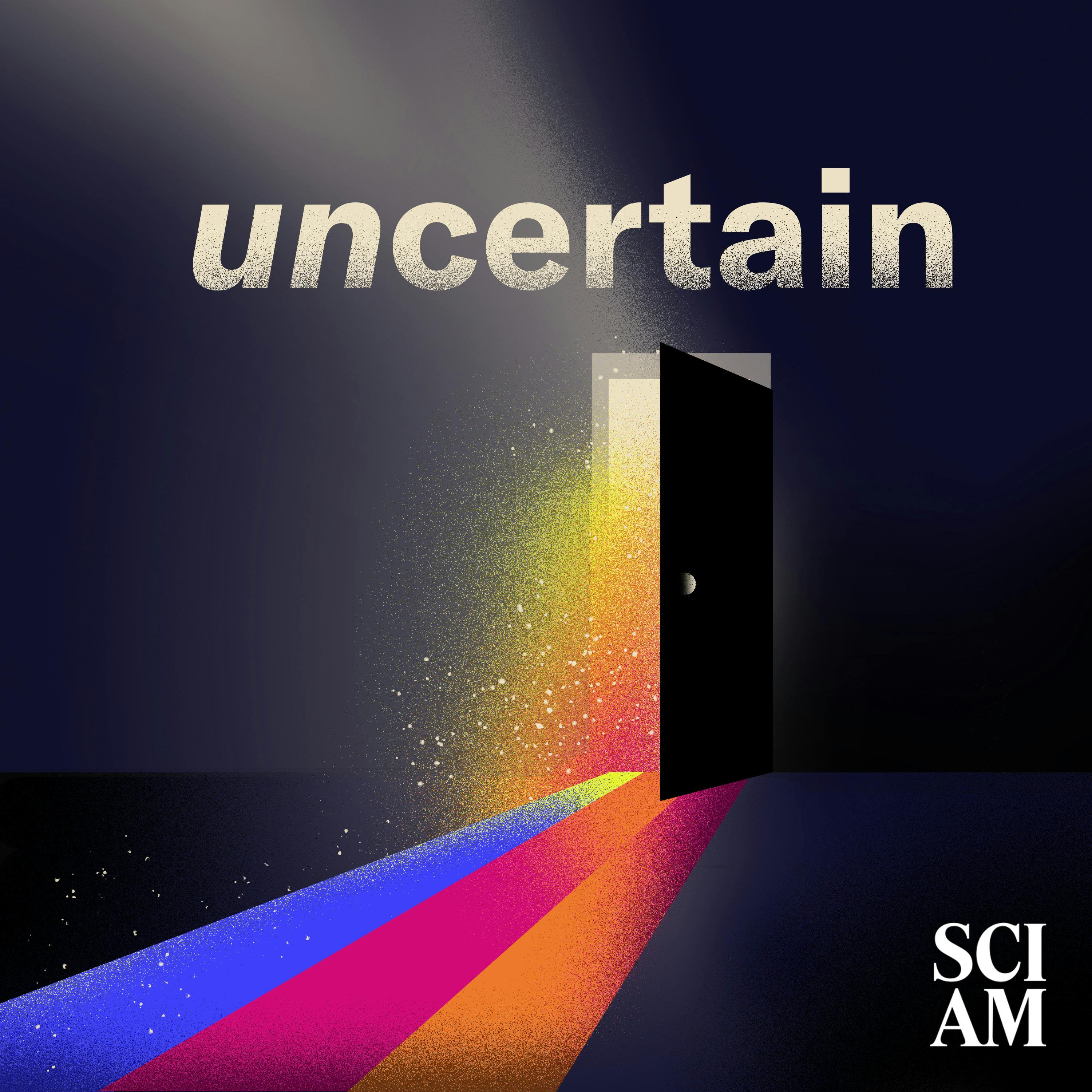 Science Talk
Science TalkTwitter: @sciam
Site: www.scientificamerican.com/podcast/science-talk
544 episodes • 2006 to present
Average episode: 26 minutes
Open in Apple Podcasts • RSS
Categories: Interview-Style • Story-Style
Podcaster's summary: Science Talk is a podcast of longer-form audio experiments from Scientific American--from immersive sonic journeys into nature to deep dives into research with leading experts.
 Radiolab
RadiolabTwitter: @Radiolab • @lmillernpr • @latifnasser
Site: www.wnycstudios.org/podcasts/radiolab
150 episodes • 2021 to present
Average episode: 45 minutes
Open in Apple Podcasts • RSS
Categories: Broadcast Radio Programs • Story-Style
Podcaster's summary: Radiolab is on a curiosity bender. We ask deep questions and use investigative journalism to get the answers. A given episode might whirl you through science, legal history, and into the home of someone halfway across the world. The show is known for innovative sound design, smashing information into music. It is hosted by Lulu Miller and Latif Nasser.
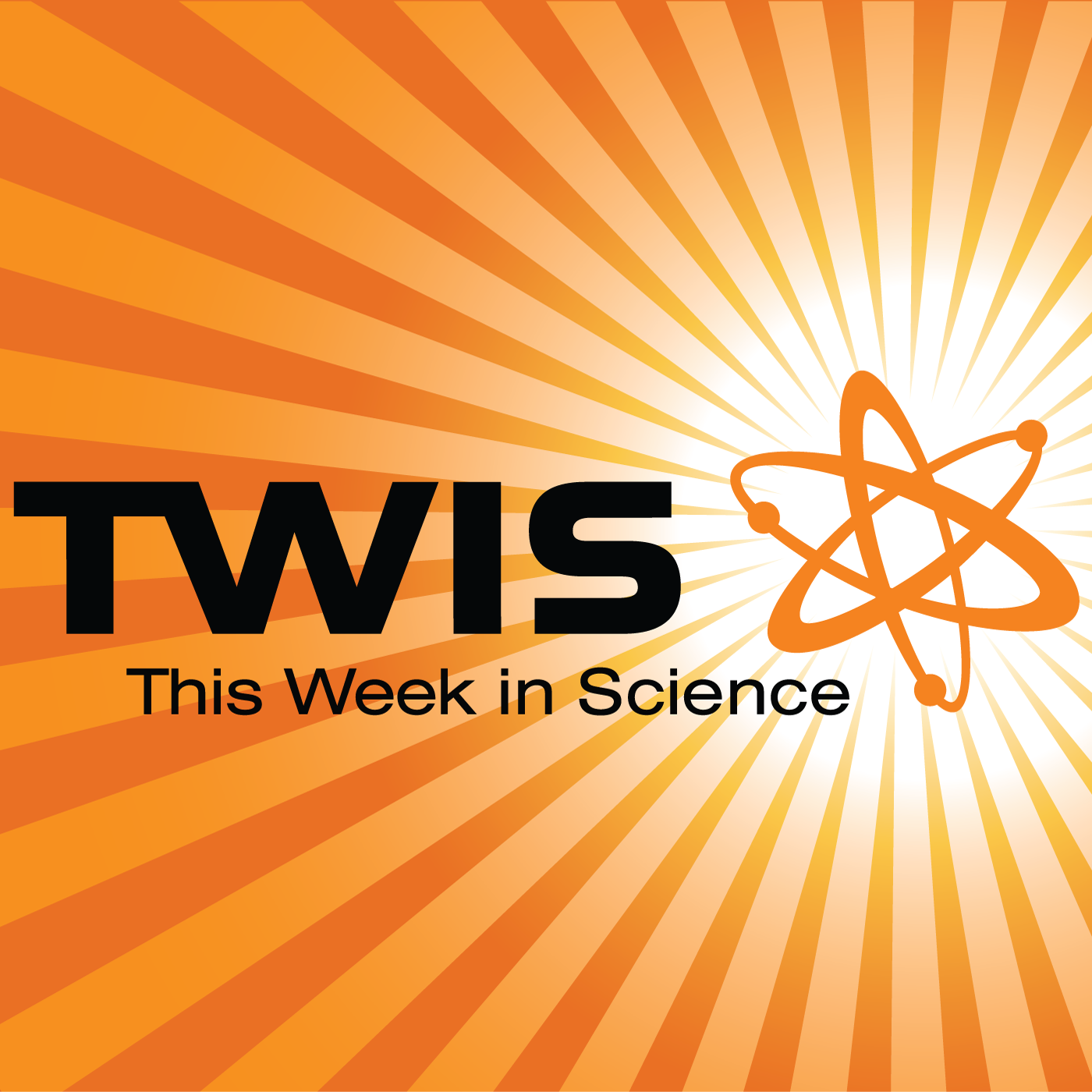 This Week in Science – The Kickass Science Podcast
This Week in Science – The Kickass Science PodcastTwitter: @TWIScience • @drkiki • @Jacksonfly • @blairsmenagerie
Site: www.twis.org
50 episodes • 2023 to present
Average episode: 103 minutes
Open in Apple Podcasts • RSS
Categories: News-Style • Three+ Hosts
Podcaster's summary: The kickass weekly science and technology radio show presenting a humorous and irreverent look at the week in science and tech. Each show TWIS discusses the latest in cutting edge science news on topics such as genetic engineering, cybernetics, space exploration, neuro science, and a show favorite Countdown to World Robot Domination. The show is hosted by Dr. Kirsten Sanford, a PhD in neuroscience, Justin Jackson, a wisecracking professional car salesman and armchair physicist, and Blair Bazdarich, a zoologist. Consistently voted one of the top science radio shows on the web - check it out and hear a science news program like no other.
 The Joy of Why
The Joy of WhyTwitter: @QuantaMagazine • @stevenstrogatz
Site: quantamagazine.org/tag/the-joy-of-why
34 episodes • 2022 to present
Average episode: 37 minutes
Open in Apple Podcasts • RSS
Categories: Interview-Style • Math • Multidisciplinary
Podcaster's summary: "The Joy of Why" is a Quanta Magazine podcast about curiosity and the pursuit of knowledge. The mathematician and author Steven Strogatz and the astrophysicist and author Janna Levin take turns interviewing leading researchers about the great scientific and mathematical questions of our time. New episodes are released every other Thursday.
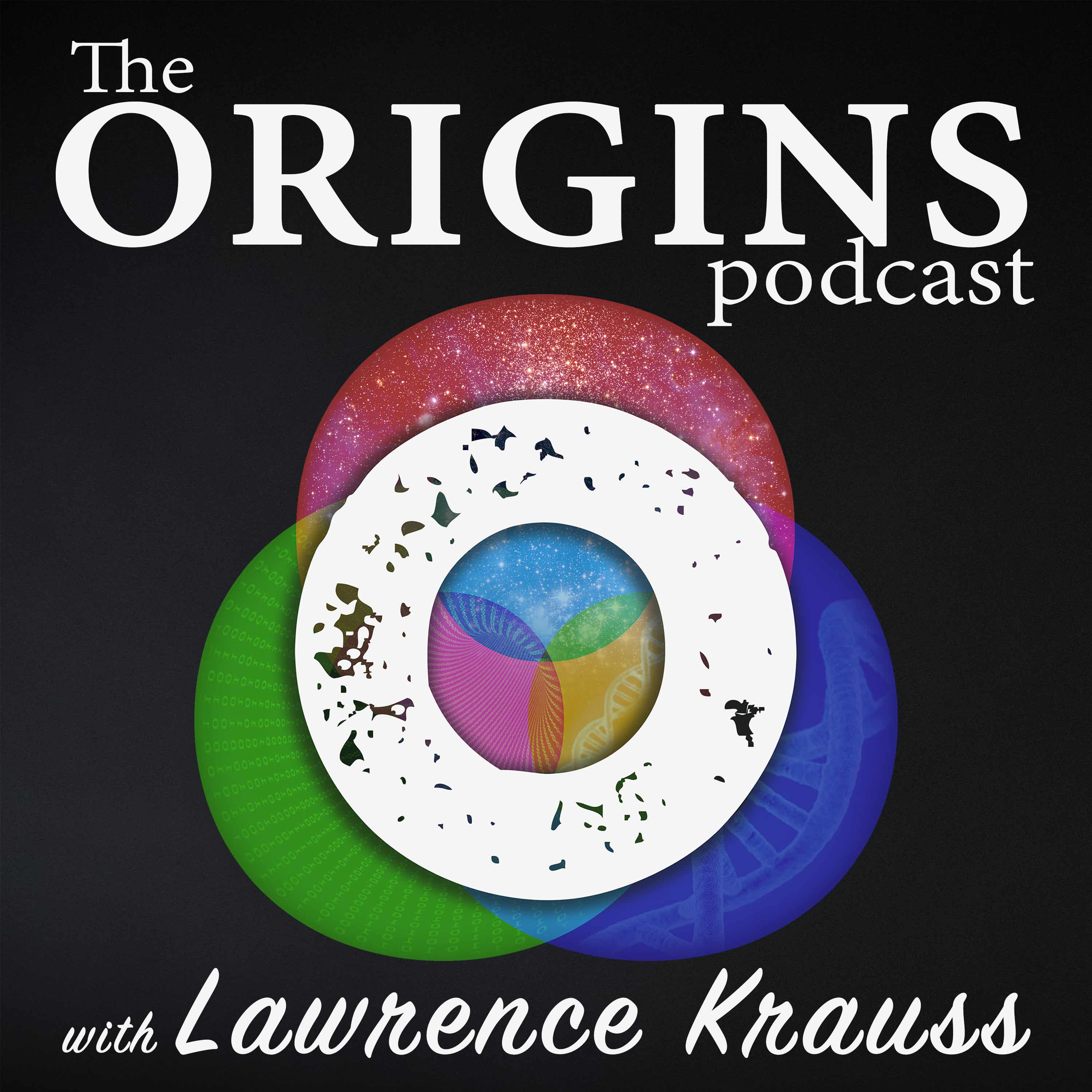 The Origins Podcast with Lawrence Krauss
The Origins Podcast with Lawrence KraussTwitter: @LKrauss1 • @OriginsProject
Site: www.originsproject.org/podcast
87 episodes • 2019 to present
Average episode: 110 minutes
Open in Apple Podcasts • RSS
Categories: Interview-Style • Multidisciplinary • Physics
Podcaster's summary: Science, Culture, Reason, Public Policy, & Fascinating Ideas
 COMPLEXITY: Physics of Life
COMPLEXITY: Physics of LifeTwitter: @sfiscience • @michaelgarfield
Site: www.santafe.edu/culture/podcasts
113 episodes • 2019 to present
Average episode: 58 minutes
Open in Apple Podcasts • RSS
Categories: Interview-Style • Math • Multidisciplinary
Podcaster's summary: Are there universal laws of life and can we find them? Is there a physics of society, of ecology, of evolution? Join us for six episodes of thought-provoking insights on the physics of life and its profound implications on our understanding of the universe. In this season of the Santa Fe Institute’s Complexity podcast’s relaunch, we talk to researchers who have been exploring these questions and more through the lens of complexity science. Subscribe now and be part of the exploration!
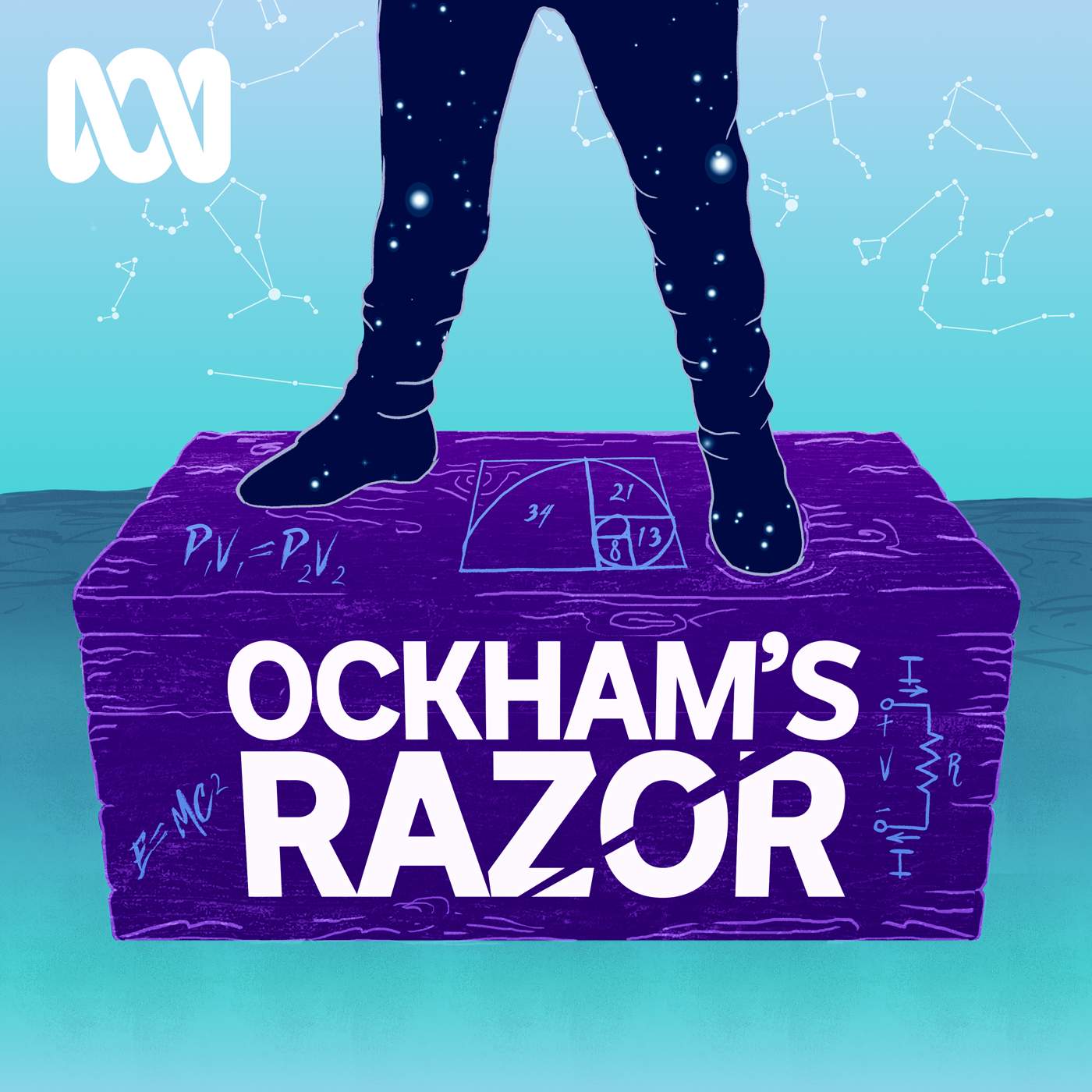 Ockham’s Razor
Ockham’s RazorTwitter: @ABCscience • @teegstar
Site: www.abc.net.au/radionational/programs/ockhamsrazor
250 episodes • 2018 to present
Average episode: 11 minutes
Open in Apple Podcasts • RSS
Categories: Broadcast Radio Programs • Science-Adjacent • Story-Style
Podcaster's summary: Ockham’s Razor is a soap box for all things scientific, with short talks about research, industry and policy from people with something thoughtful to say about science.
 FQxI Podcast
FQxI PodcastTwitter: @FQXi
Site: fqxi.org/community/podcast
107 episodes • 2012 to present
Open in Apple Podcasts • RSS
Categories: Physics • Two Hosts
Podcaster's summary: Physics podcast from the Foundational Questions Institute
 Conversations at the Perimeter
Conversations at the PerimeterTwitter: @Perimeter • @laurenehayward • @Call_me_Colin
Site: perimeterinstitute.ca/conversations-perimeter
23 episodes • 2022 to present
Average episode: 58 minutes
Open in Apple Podcasts • RSS
Categories: Interview-Style • Physics • Two Hosts
Podcaster's summary: Conversations at the Perimeter will introduce you to brilliant researchers working at the forefront of science, seeking to solve nature’s deepest mysteries – from quantum to cosmos. Learn about their motivations, the challenges they encounter, and the drive that keeps them searching for answers. Join the conversation!
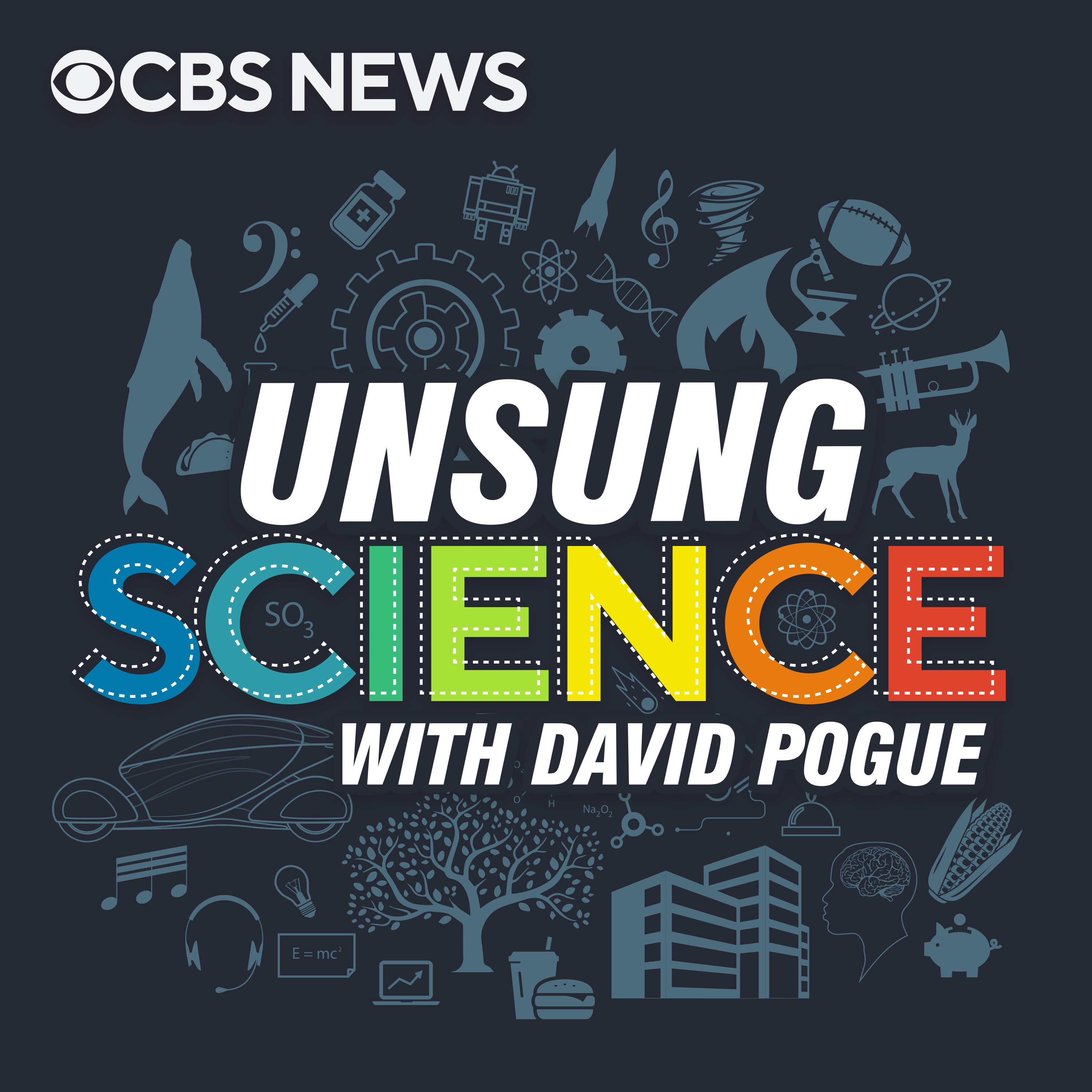 Unsung Science
Unsung ScienceTwitter: @Pogue
Site: unsungscience.com/
47 episodes • 2021 to 2023
Average episode: 36 minutes
Open in Apple Podcasts • RSS
Categories: Science-Adjacent • Story-Style
Podcaster's summary: Hear the untold stories of mind-blowing achievements in science and tech. “CBS Sunday Morning” correspondent and six-time Emmy winner David Pogue takes you behind the scenes into the creation stories of the world’s greatest advances and the people behind them. From transportation, food, space, internet, and health, creators reveal their inspirations and roadblocks they encountered in bringing their breakthroughs to the public. Hear all-new episodes of the award-winning Unsung Science podcast every other Friday.
 Science Rules! with Bill Nye
Science Rules! with Bill NyeTwitter: @BillNye • @coreyspowell
Site: www.stitcher.com/podcast/stitcher/science-rules-with-bill-nye
151 episodes • 2019 to 2023
Average episode: 39 minutes
Open in Apple Podcasts • RSS
Categories: Interview-Style • Two Hosts
Podcaster's summary: Bill Nye is on a mission to change the world — one voicemail at a time. Bill and science writer Corey S. Powell take your burning questions and put them to the world's leading experts on just about every topic in the universe. Should you stop eating cheeseburgers to combat climate change? Could alien life be swimming inside the moons of Jupiter and Saturn? Does your pet parakeet learn to sing the way that you learned to speak? Bill, Corey, and their special guests will answer those questions and convince you that... science rules!
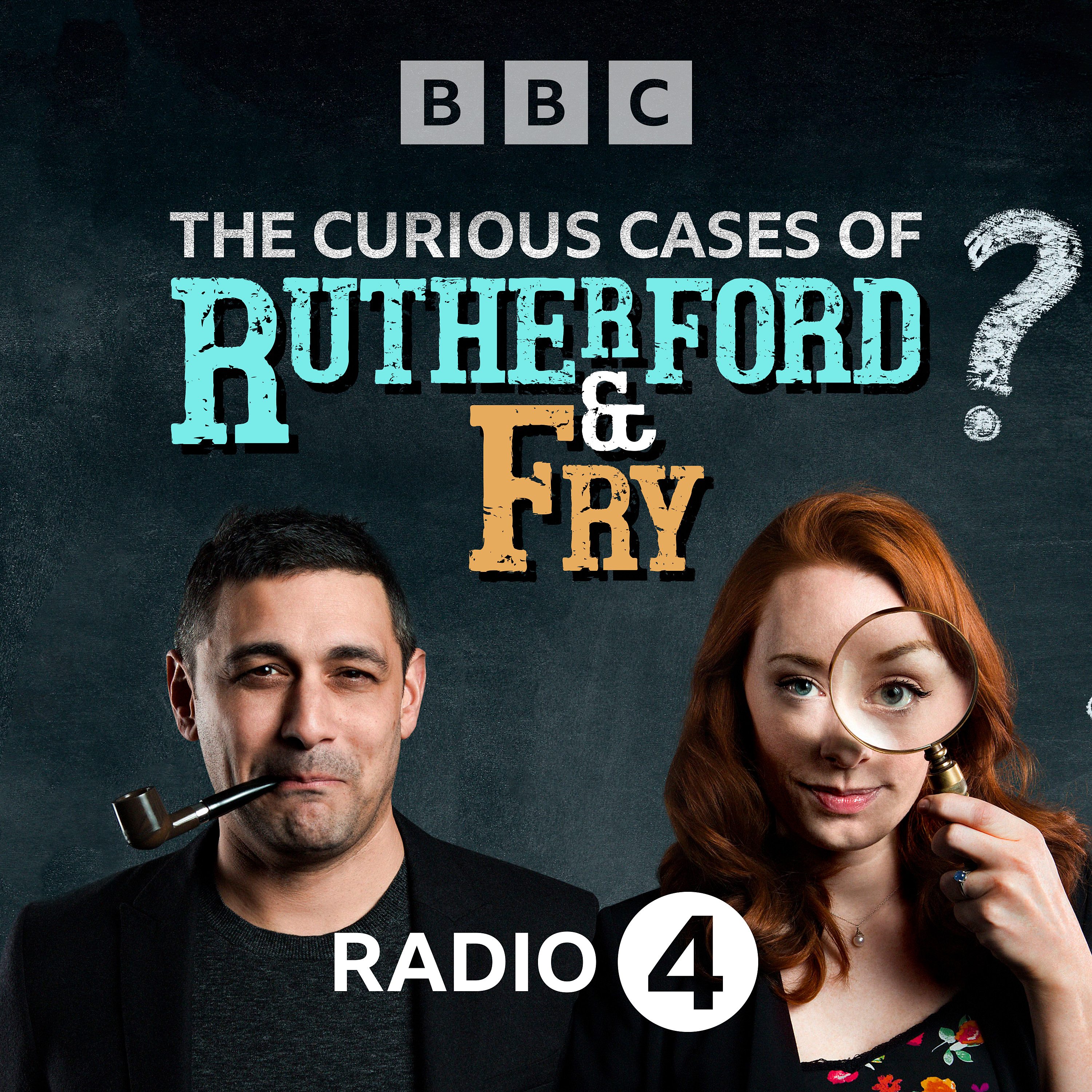 The Curious Cases of Rutherford & Fry
The Curious Cases of Rutherford & FryTwitter: @AdamRutherford • @FryRsquared
Site: www.bbc.co.uk/programmes/b07dx75g
137 episodes • 2016 to 2023
Average episode: 28 minutes
Open in Apple Podcasts • RSS
Categories: Broadcast Radio Programs • Story-Style
Podcaster's summary: Science sleuths Dr Adam Rutherford and Dr Hannah Fry investigate everyday mysteries sent by listeners.
 TED Talks Science and Medicine
TED Talks Science and MedicineTwitter: @TEDTalks
Site: www.ted.com/talks
136 episodes • 2018 to 2023
Average episode: 12 minutes
Open in Apple Podcasts • RSS
Categories: Talk/Seminar Series
Podcaster's summary:
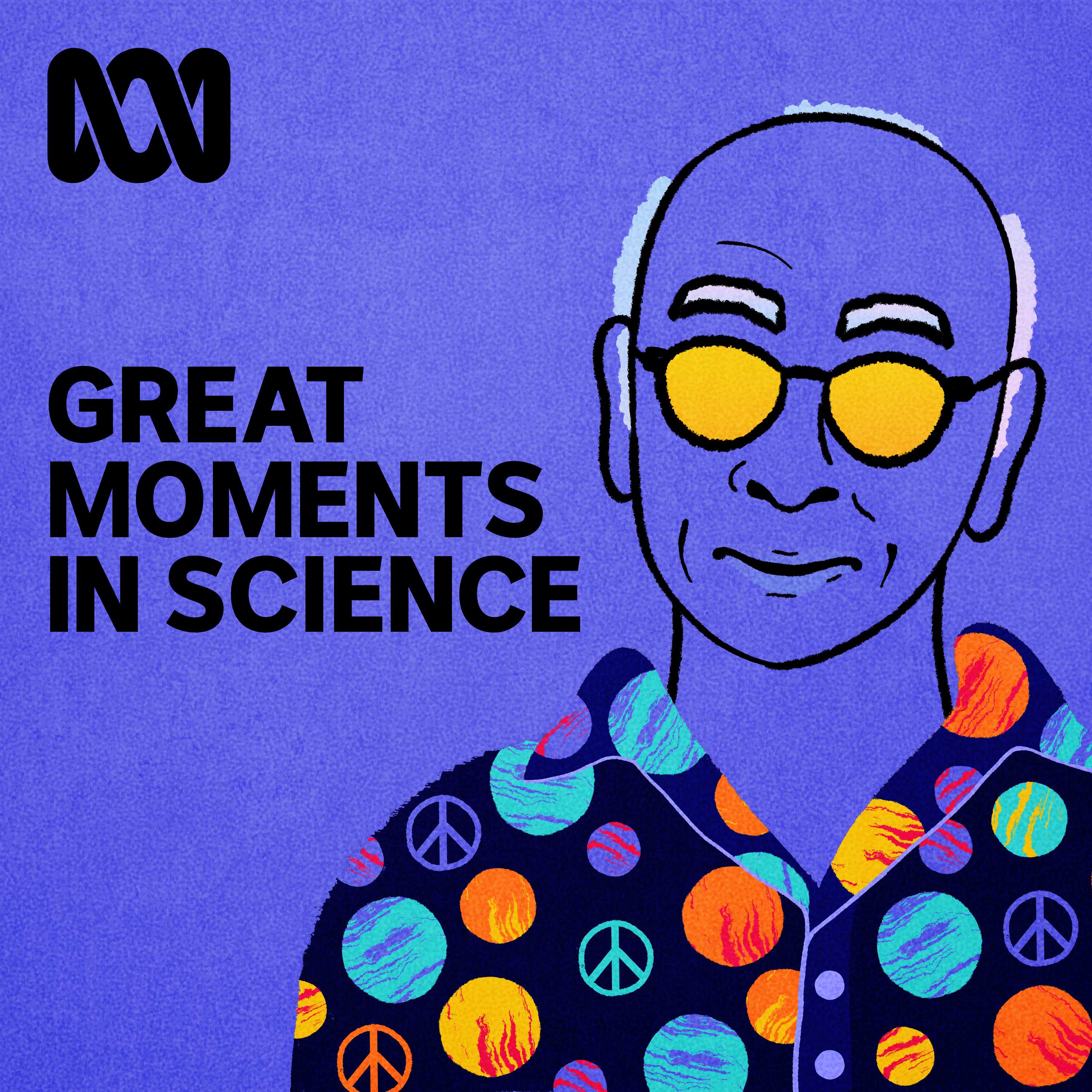 Great Moments In Science
Great Moments In ScienceTwitter: @ABCscience • @DoctorKarl
Site: www.abc.net.au/radionational/programs/greatmomentsinscience
249 episodes • 2018 to 2023
Average episode: 7 minutes
Open in Apple Podcasts • RSS
Categories: Broadcast Radio Programs • Story-Style
Podcaster's summary: From the ground breaking and life saving to the wacky and implausible, Dr Karl Kruszelnicki reveals some of the best moments in science.
 Science on the Radio
Science on the RadioTwitter: @waer883
Site: www.waer.org
20 episodes • 2019 to 2022
Average episode: 2 minutes
Open in Apple Podcasts • RSS
Categories: Broadcast Radio Programs
Podcaster's summary: "Science on the Radio" is a 90-second science information segment featuring Marvin Druger, retired chair of the Department of Science Teaching and professor of biology and science education at Syracuse University.
 NOVA Now
NOVA NowTwitter: @novapbs
Site: www.pbs.org/novanowpodcast
30 episodes • 2020 to 2021
Average episode: 27 minutes
Open in Apple Podcasts • RSS
Categories: Story-Style
Podcaster's summary: From the PBS science series NOVA, a biweekly podcast digging into the science behind the headlines. Alok Patel takes you behind the scenes with the people—scientists, engineers, technologists, mathematicians and more—working to understand our world. Now it's more critical than ever to distinguish fact from fiction and find science-based answers to the most pressing questions of our time. | | Subscribe, and learn more by visiting pbs.org/novanowpodcast.
 The Joy of x
The Joy of xTwitter: @QuantaMagazine • @stevenstrogatz
Site: www.quantamagazine.org/tag/the-joy-of-x
26 episodes • 2020 to 2021
Average episode: 45 minutes
Open in Apple Podcasts • RSS
Categories: Interview-Style • Math • Multidisciplinary
Podcaster's summary: The acclaimed mathematician and author Steven Strogatz interviews some of the world's leading scientists about their lives and work. | | You've learned from Quanta. Now we want to learn from you! Quanta is conducting a series of surveys to better serve our audience. Take our podcast listener survey and you will be entered to win a free Quanta book, t-shirt or tote bag: quantamag.typeform.com/podcast
 New Scientist Escape Pod
New Scientist Escape PodTwitter: @newscientist
Site: www.newscientist.com
16 episodes • 2021
Average episode: 16 minutes
Open in Apple Podcasts • RSS
Categories: Story-Style
Podcaster's summary: Are you tired of hearing about coronavirus? Has lockdown left you worn out? Then perhaps it’s time to escape. Join Rowan Hooper and the team at New Scientist in this covid-free space, as they discuss all that’s right with the world - the stories that remind us of how wonderful this planet really is. Find out more at newscientist.com/podcasts Hosted on Acast. See acast.com/privacy for more information.
 The Universe Speaks in Numbers
The Universe Speaks in NumbersTwitter: @grahamfarmelo
Site: grahamfarmelo.com
25 episodes • 2019 to 2020
Average episode: 24 minutes
Open in Apple Podcasts • RSS
Categories: Interview-Style • Math • Physics
Podcaster's summary: In The Universe Speaks in Numbers award-winning science writer Graham Farmelo is in conversation with some of the great names in modern physics and mathematics. Among the interviewees are Michael Atiyah, Ruth Britto, Lance Dixon, Simon Donaldson, Freeman Dyson, Juan Maldacena, Michela Massimi, Roger Penrose, Martin Rees, Simon Schaffer and Edward Witten.To read more see Graham's book The Universe Speaks in Numbers: How Modern Maths Reveals Nature's Deepest Secrets. Hosted on Acast. See acast.com/privacy for more information.
 Science Distilled
Science DistilledTwitter: @KUNRPublicRadio • @Paul_Boger
Site: www.kunr.org
9 episodes • 2019 to 2020
Average episode: 19 minutes
Open in Apple Podcasts • RSS
Categories: Broadcast Radio Programs • Story-Style
Podcaster's summary: Science Distilled is a podcast based on the lecture series of the same name, where we break down concepts from cutting edge science and research and learn how they apply to the world around us. The podcast is hosted by KUNR's Paul Boger and Michelle Matus. This show is for science nerds and novices alike. We'll geek out on robots, dive into astrobiology, and take a deeper look at the world around us. With every topic we cover, you'll hear conversations from scientists doing the research and learn how that research impacts you and the world around us. This podcast is a production of KUNR Public Radio, in partnership with the Desert Research Institute and the Terry Lee Wells Nevada Discovery Museum in Reno, Nevada.
